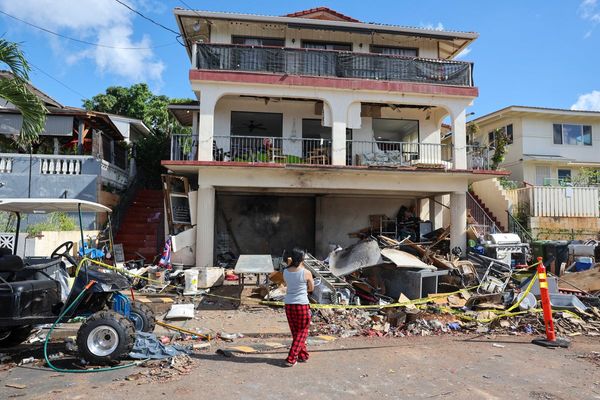
HONG KONG: More than half of some 3,600 Hong Kong secondary school pupils questioned by a youth group showed signs of depression, researchers said on Tuesday.
The Federation of Youth Groups poll in October found that while more than a third were happy to be back in school for the new term, 51.9% of them scored over 16 on a 20-question depression scale, indicating they were showing signs of the mental illness.
"More common symptoms include a loss of focus, anxiety over issues that were previously not of concern and fatigue," said Hsu Siu-man, the deputy executive director of the federation, the city's largest youth service organisation.
The federation surveys students every two years using the US Center for Epidemiological Studies Depression Scale, and since 2017 the number of pupils scoring more than 16 has hovered at about 50%. The 2017 sample had included university and college students as well.
At the same time, 48.6% of the pupils surveyed reported "relatively high" stress levels, scoring themselves between seven to 10 on a 10 point scale, with the higher end representing more stress. While the proportion of stressed students this year is slightly down from last year's 10-year high of 52%, it is still almost 10 percentage points higher than in 2017.
Yrainse Lam Kam-fong, the team leader of the federation's school social work unit, said the survey's results were in line with the observations of frontline social workers deployed at the city's schools.
"The students are generally happy to be in secondary school, but the heavier workload and faster pace of instruction is stressing them out," Lam said.
The heavy workload was among the biggest concerns of the students surveyed, while lower than expected grades were the top worry of the pupils, with nearly 40% of them saying they were anxious about test scores.
Ken Hui Keung-mau, who is in charge of a youth counselling hotline, said this year was also the first time counsellors had heard students worry about how hard it is to make new friends as more of their social circle has begun to emigrate.
"As the coronavirus pandemic means they have less time to socialise in school, with no meal times, they are finding it hard to make new friends," Hui said. Calls to the hotline had also increased over the past year.
Between September 2020 and this August, the hotline saw 19,445 calls, a rise of nearly 3,000 from the same period the previous year.
Hsu called on schools to adopt accepted measurement tools developed by universities to identify at-risk students, as well as to foster a more caring and accepting environment. Students should also be taught to know that seeking help was not a sign of weakness, she added.
Lam, meanwhile, said teachers played an important role in being able to identify signs of stress, particularly among pupils who had just started secondary school and were still adjusting.
"If they can notify parents earlier on, then that would be a big help to the students," she said.
Resources to combat mental health issues have been tight in Hong Kong, with more than 400 psychiatrists serving a population of 7.5 million. The longest wait time for a doctor at a public specialist clinic is 30 months, and demand for social workers and psychologists is also growing.
Health authorities have expanded a mental health support scheme for students from 17 schools in 2017 to 210 schools this year, while also starting a citywide mental health prevalence survey covering children, adolescents and the elderly to help with the development of mental health services.







